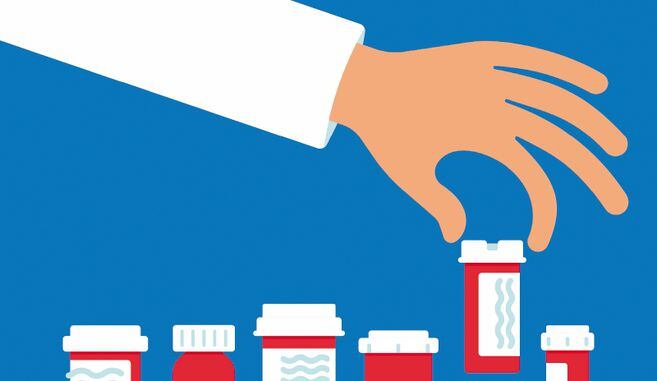
Research found that there were 29,853 medication errors in Colombia between 2018 and 2019, but a very small margin could affect the patient. Only 5% of errors are reported.
It may have happened to you that you go to the pharmacy near you, or your EPS pharmacy, and they give you a medicine that is not what your medical order says. Medication errors are unlikely, but they do occur in Colombia.
For example, it is calculated that 7% of hospital prescriptions contain medication errors (although only 0.18%) are serious. According to a 2013 study conducted in non-serious hospitalized patients in Pereira, there are errors in the vast majority of prescriptions, such as the lack of registration of medication during treatment (in 97.3% of cases) or in the route of administration (12.9%). Another study discovered 14,873 medication errors, 79 of which had caused some harm to the patient.
Yet it is estimated that only 5% of medication errors are reported. Therefore, a group of researchers from the National Institute of Health (INS) has taken on the task of determining the prevalence and frequency of medication errors reported in the country between 2018 and 2019.
The study, published this week in the journal Biomedical, was plunged into the database of medication errors records of Audifarma, a logistics operator who supplies drugs to 8.5 million outpatients in 17.7% of the Colombian population.
Read: Mistakes In Administering Drugs, A Problem That Didn’t Start With The Bucaramanga Nurse
A medication error can include delays in the delivery, prescription, dispensing, or consumption of the medication by the patient. The causes vary: it could include work overload, lack of concentration on the part of the official, or similarity between the names or packages that facilitate the mistake.
Every error is recorded by the official who discovers it (medical or nursing personnel, or pharmaceutical personnel and others) in a virtual application and is stored in a database. According to the results, approximately 152 million drugs were dispensed (72,042,919 in 2018 and 80,766,727 in 2019, and 29,853 outpatient medication errors were reported, almost the same number between year and year: 14,596 in 2018 and 14,942 in 2019, in Audifarma’s 417 pharmaceutical settings. the vast majority in Bogotá, then Cali, Medellín Valledupar, Popayán and Tuluá.
It was found that there are 1.93 medication errors per 10,000 medications dispensed and that only 0.02% of cases involved the patient. Most errors are related to poor concentration in drug delivery and the phonetic similarity of the drug name, as well as errors in product storage. In the top 10 of the drugs most involved in errors are: losartan, levothyroxine, acetylsalicylic acid, atorvastatin, acetaminophen, insulin, esomeprazole, antacids, hydrochlorothiazide and naproxen.
Most of these drugs are highly circulatory and treat chronic non-communicable diseases (such as muscle pain or heartburn), but with the exception of thyroid hormone, they do not have a narrow therapeutic window and, in principle, would have lower risks. for the patient in case they accidentally reach your hands. “Medication errors are a major problem that deserves the attention of health authorities, whose actions must focus on ensuring patient safety in addition to achieving desired effectiveness,” the study concludes.